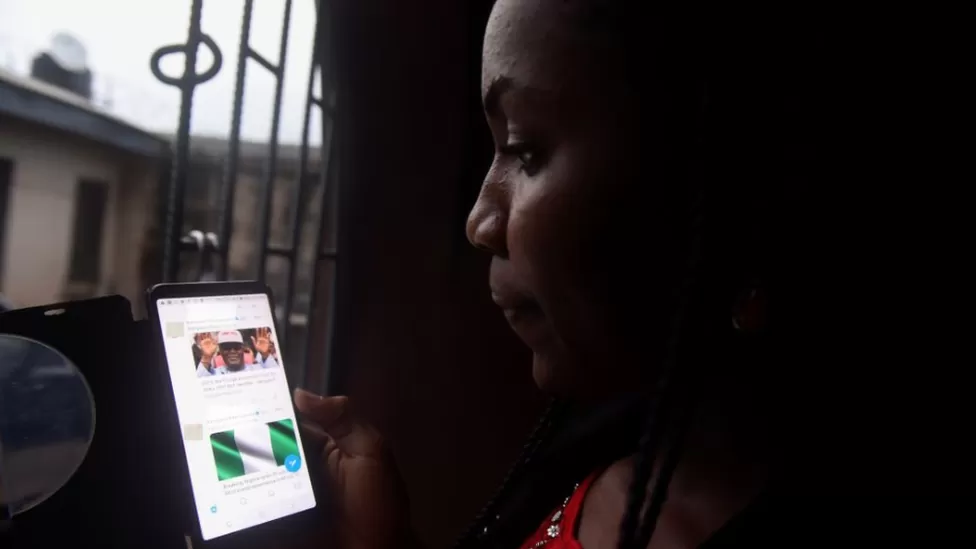Nigeria elections Websites use false stories to attract views,ads.

They found that several websites established around the time of Nigeria’s general elections in February 2023 are spreading false news.
Disinformation can be profited from a high number of ads on websites.
Sports, entertainment, and politics are woven with false stories – some publish as many as 700 pieces a month. Also, they favor or attack Nigerian politicians.
The country remains deeply divided almost seven months after the fiercely contested elections, as evidenced by last week’s ruling on the opposition challenge.
These websites may be spreading disinformation.
Lawyer Mojirayo Ogunlana recalls seeing stories being shared on Twitter, then known as X, from websites she had never heard of before the elections. She also had many WhatsApp groups.
There was a lot of fake news. Social media was full of fake news. It was making me lose trust,” Ms Ogunlana says.
The growth of these websites is being followed by disinformation researcher Mayowa Tijani. In his words, they had a “clear impact” on elections due to the fact that their narratives became the topic of national discussions. False stories continue to be spread, he says.
In this way, they push it forward and it goes viral and becomes the dominant narrative. It goes viral and spreads more and more, becoming the dominant narrative,” he says.
Among them were Podium Reporters, registered in 2021, Reportera, in July 2022, and Parallel Facts, registered in May 2023. According to Mr Tijani, the timing of their creation had a reason.
A digital marketing consultant says they can earn $100-$10,000 a month (£80-£8,000).
